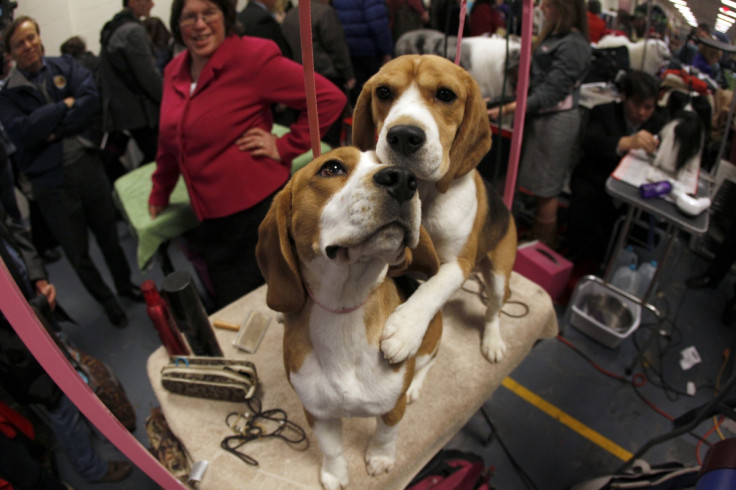Beagles bred with muscular dystrophy to help find a cure for deadly incurable disease

Scientists have bred a pack of beagles with muscular dystrophy, in the hope that they could help develop a cure for the deadly illness, according to the Guardian. Researchers at the Royal Veterinary College (RVC) have bred the dogs to have the muscle wasting disease, which affects around 70,000 people in the UK.
Muscular dystrophy is a genetic disease which currently does not have a cure, according to the NHS. The illness causes the sufferer's muscle tissue to progressively waste away, and in some cases it can affect the heart or the muscles used for breathing, causing death.
Researchers at the RVC hope that the beagles could give an insight into how evolving treatments would affect human subjects, and whether drugs could halt the disease's progress, the Guardian reported. "A host of promising new methods have been developed for treating muscular dystrophy in recent years, and these are now ready for trials," Professor Richard Piercy, an expert on neuromuscular disease, told The Guardian.
"We could use rats and mice, but beagles are far closer to humans in size and physiology, and their responses to treatments will give us far greater insights into patients' likely clinical responses to drugs we develop," he added.
The Guardian journalist who saw the beagles, which are kennelled at RVC's headquarters near Potter's Bar, Hertfordshire, described them as being clumsy and weak. They are said to be clearly hindered by the illness, which is causing the animals to stumble around as they run around their enclosure.
Animal rights groups have raised concerns about the impact of altering the beagles' genetics to conduct tests, according to Andrew Tyler, director of Animal Aid, told MailOnline.
"The history of genetic modification on animals for medical research has been one of total failure, for conditions such as Alzheimer's, heart disease, breast cancer and many more, all failed when it came to human patients," Tyler said.
The resources for this experiment would be better used on ensuring that muscular dystrophy sufferers get the support and help that they need, rather than mistreating animals, he added.
© Copyright IBTimes 2025. All rights reserved.





















